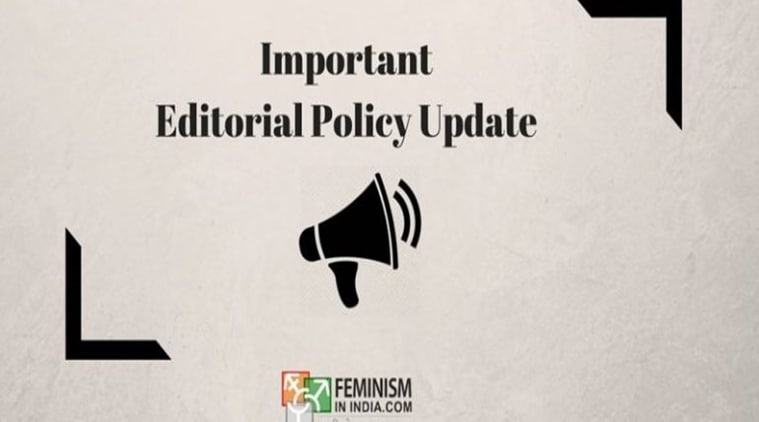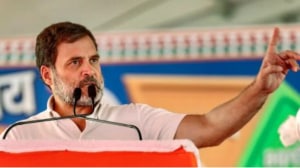Feminism in India’s editorial policy has become a talking point on Twitter
They are being called crazy, trash, cancers of society, dumb, feminazis.
 They formed a new editorial policy where men don’t write on women’s exp, upper-castes on Dalits, heterosexuals on LGBT, etc./ FII
They formed a new editorial policy where men don’t write on women’s exp, upper-castes on Dalits, heterosexuals on LGBT, etc./ FII
In today’s world, it’s hard to define feminism because every feminist and non-feminist has his/her own definition of the term — which often does not share the same ground. And sadly, so is the understanding of marginal sections of society like Dalits, LGBTQs and others. And the conclusion is that you just can’t keep everyone happy so forget about it and do what you have to do.
Feminism In India, an online platform giving voice to the issues of the less privileged, recently changed their editorial policy and shared it on Twitter.
“We formed a new editorial policy where men don’t write on women’s exp, upper-castes on Dalits, heterosexuals on LGBT, etc. No appropriation. This is an attempt to make our feminist politics as intersectional as possible & give voice to the most marginalized. FII is a place for all,” they tweeted.
Unexpectedly, this tweet did not just pass off as yet another regular tweet on policy decision, but eventually snowballed into a larger debate discussing if the organisation is encouraging discrimination, exclusion and segregation. They are being called crazy, trash, cancers of society, dumb, feminazis.
@FeminismInIndia Discrimination of any kind, only builds Discrimination.
— Shubhi Shukla (@ShubhiShukl) July 5, 2016
@FeminismInIndia understand the attempt, and reasons behind it. But how is this different from any other exclusion?
— chicu (@Chicu_l) July 5, 2016
@FeminismInIndia counterproductive and regressive policy IMHO. People should have freedom to support and speak up for their convictions 1/2
— Gentleman Joe (@wisecrackjoe) July 5, 2016
@FeminismInIndia well, this is like going back in time. There should be representation from all and about all, exclusion never helps 1/2
— NewAgeIndian (@TheNewAgeIndian) July 5, 2016
@FeminismInIndia So an upper-caste guy living among Dalits cannot write on Dalits, but a millionaire Dalit can? #Fail
— Shnu Shra (@Kalki_Avatharam) July 6, 2016
@FeminismInIndia This is the kind of tokenism the world needs to get rid of. Bigotry at its best.
— Shnu Shra (@Kalki_Avatharam) July 6, 2016
. @FeminismInIndia Utterly dumb. I am a far greater supporter of women rights than any Sanghi woman. Ur promoting compartmentalization.
— Suryanarayan Ganesh (@gsurya) July 5, 2016
.@DuckSpeech @FeminismInIndia Wrong. Giving them voice does not need you to ban other people’s voices.
— Eggamind (@Stupidosaur) July 5, 2016
Now, the bigger question is: Are they really doing what they’re being accused of? It’s a policy that want’s to give first-person voice to the marginal section highlighting their own issues rather than an armchair piece by someone who may/may not have experienced the life but has been witness to it. In this, they’re not limiting or excluding any section, just adding another viewpoint, while others can do reportage.
The team was clearly forced to explain their policy here.
As it is, there are two sections always debating about how feminism should be seen and lived in India. There are readers who read an article about Section 377 written by a straight guy and shuns it saying “how does he/she know what it is really about” and then there are these who are not ready to accept an editorial policy because apparently, it gives a singular point of view!
People just can’t seem to make up their minds!
- 01
- 02
- 03
- 04
- 05































